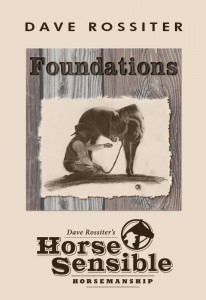Author Allison Bruning shares the trailer for her Historical Paranormal Romance novel, Calico (Children of the Shawnee):
Calico (Children of the Shawnee) is available in print and for Kindle at Amazon.com.
[subscribe2]
Celebrating Independent Authors
Author Allison Bruning shares the trailer for her Historical Paranormal Romance novel, Calico (Children of the Shawnee):
Calico (Children of the Shawnee) is available in print and for Kindle at Amazon.com.
[subscribe2]
 Do you have a literary novel in you? Have you written the first chapter and a synopsis? Enter Lightship Publishing’s flagship competition, First Chapter, for a chance to win mentoring and publication. On-line entry costs £15.
Do you have a literary novel in you? Have you written the first chapter and a synopsis? Enter Lightship Publishing’s flagship competition, First Chapter, for a chance to win mentoring and publication. On-line entry costs £15.
The competition will close at midnight on 30th June 2012.
For more information, visit their website.
* * * * *
Indies Unlimited is pleased to provide this contest information for the convenience of our readers. We do not, however, endorse this or any contest/competition. Entrants should always research a competition prior to entering.

[This is part 2 of a series of articles by Lin Robinson featured on Indies Unlimited. For part 1, click here.]
As foreshadowed in the opening column in this series, we’re going to examine the whole idea of “rules” for writing the English language, and examine how non-real rules get passed on and even amplified.
One way to look at this would be, “It you say that’s a rule, show me the rule book.” Because there isn’t one. This isn’t baseball or chess, it’s a living organ of humanity. You can whip out your Funkin’ Strunkin’ Wagnals–or better yet, a UPI stylebook–but is it such a great idea to write our novels in the style of newspapers or academic theses?
Here’s something the rule mavens don’t mention, and probably don’t even know: there are no official rules for English. Seriously. French and Spanish have official academies that issue the law for those tongues, but English doesn’t. Writers in those languages break the rules, too, but somebody could look it up if they want to be persnickety. “La Academia Real del Castellano dice que no.” “You imperialist Americaines wish to pollute the sacred Gallic tongue with your garbage Yanqui merde.” But you can’t do that in English, there is no governing body. It’s a democracy. Which means the people make the rules. The statement, “Everybody uses that word the wrong way,” doesn’t really make any sense in English. If people use it different, we change the dictionaries. It’s an organic, evolutionary process. That’s not a call for anarchy: there are grammar books (most of which agree with each other). But is grammar the main issue here? There is no grammatical rule against using adverbs or passive voice. They are just styles, not rules at all. Continue reading “Breaking the Rules (part 2) by Lin Robinson”
 Today we get a sneak peek at a nonfiction title by horse trainer Dave Rossiter. His book Foundations: Dave Rossiter’s Horse Sensible Horsemanship is available on Smashwords and on Amazon.
Today we get a sneak peek at a nonfiction title by horse trainer Dave Rossiter. His book Foundations: Dave Rossiter’s Horse Sensible Horsemanship is available on Smashwords and on Amazon.
Arizona horse trainer Dave Rossiter looks back on knowledge gained through experience and a little help from his friends, which brought him success with horses and built the foundation for his “Horse Sensible Horsemanship” program.
Dave then goes in-depth on how to “read” a horse and how adjusting your training program to suit each particular horse’s physical and mental profile reaps great rewards.
“Foundations” is the first in a series of books written in support of Rossiter’s Horse Sensible Horsemanship program which takes the horse enthusiast on a journey of equine understanding, focusing on leadership, trust, communication, and safety.
Dave has been working with horses since the age of ten, and is a successful trainer and clinician in Gilbert, Arizona. You can learn more about Dave at his reality video horse training website at HorseSensible.com. Continue reading “Foundations: Horse Sensible Horsemanship by Dave Rossiter”